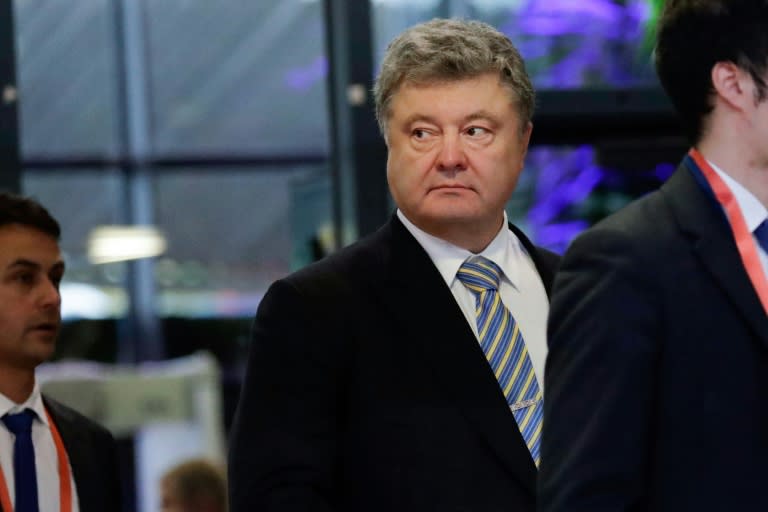Separatists voted back in as US denounces 'sham' east Ukraine polls
Residents of Russian-backed areas of eastern Ukraine have voted to keep their separatist leaders, results showed Monday, cementing Moscow's hold on the disputed regions. Kiev and its Western allies denounced the elections, with Washington on Monday describing the polls as a "sham" meant to legitimise breakaway authorities. Analysts say the votes will allow Moscow to claim the region's leaders as democratically elected representatives in future talks with Kiev, although few expect Ukraine's moribund peace process to be revived any time soon. Gun-toting, camouflage-clad guards were deployed to ensure order during Sunday's vote in the Donetsk and Lugansk "People's Republics", which have been controlled by separatists since breaking away from Ukraine's pro-Western government in 2014. Authorities pulled out all the stops to encourage a high turnout, setting up food stalls near polling stations and offering lottery tickets to those who voted. Officials said more than 80 percent of eligible voters cast their ballots in Donetsk, while turnout stood at 77 percent in Lugansk. Denis Pushilin, the 37-year-old acting Donetsk leader and a former negotiator with Kiev, was elected with 61 percent of the vote with almost all ballots counted, the local electoral commission said. He had been in charge of the region following the killing of the rebel Donetsk "president" in a bomb attack in August. Leonid Pasechnik, 48, the acting Lugansk leader and previously the regional head of the Ukrainian security service, took 68 percent of the vote. - 'Illegal and manipulative' - Kiev's central election commission dismissed the results as of no consequence, saying it "categorically rejects any legal significance of these illegal and manipulative elections". But the Kremlin said the regions had "nothing left but to self organise" after being "abandoned" by Ukraine. "The Minsk agreements are not being fulfilled by the Ukrainian side," spokesman Dmitry Peskov said, referring to 2015 Western-backed accords aimed at bringing peace to the region. Alexei Makarkin of the Moscow-based Center for Political Technologies said the polls were about solidifying the authority of the regions' separatist governments. "Without these elections, they would have had less legitimacy than their predecessors," he said. Analysts said the Kremlin had greater control over Pushilin than his predecessor, and that the polls were a way to increase its influence in the regions, which represent about three percent of the Ukrainian mainland. French President Emmanuel Macron and German Chancellor Angela Merkel branded the polls illegal after talks with Ukrainian President Petro Poroshenko on the sidelines of World War I commemorations Sunday. The US State Department joined in on Monday, with spokeswoman Heather Nauert saying the votes were an attempt by Moscow to give credibility to its "proxies" in eastern Ukraine. "These entities have no place within the Minsk agreements or within Ukraine's constitutional government, and they should be dismantled along with the illegal armed formations," Nauert said in a statement. Western powers had asked Russia not to allow the polls to go ahead, arguing they would further hamper efforts to end a conflict that has killed more than 10,000 people over four years. In 2014, Russia annexed Crimea and supported the outbreak of the insurgency in eastern Ukraine in what Kiev sees as punishment for a pivot to the West. - Peace talks in deadlock - While heavy fighting is over, the conflict regularly claims the lives of soldiers and civilians. Kiev said on Saturday that four Ukrainian soldiers had died in recent days. Peace negotiations have hit deadlock and the Minsk deal is largely dead in the water. Moscow, which denies accusations of funnelling troops and arms across the border, said the polls were necessary to fill the power vacuum after the assassination of Donetsk leader Alexander Zakharchenko. Moscow pointed the finger at Ukraine for his killing while Kiev blamed infighting among the separatists. Ukraine is set for a presidential election of its own next year, although as yet there is no clear frontrunner. "Russia will be watching the results of the 2019 elections in Ukraine. It will want the future president to start negotiations with Pushilin and Pasechnik," Makarkin said.



